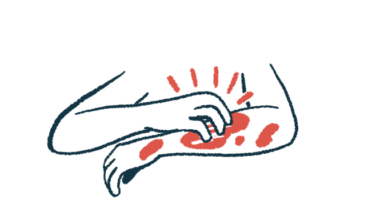Castle Creek, Fibrocell Teaming Up to Advance FCX-007 for Recessive Dystrophic Epidermolysis Bullosa

Fibrocell Science and Castle Creek Pharmaceuticals are partnering to further develop the investigational gene therapy FCX-007 for the treatment of recessive dystrophic epidermolysis bullosa (RDEB).
Under the collaboration, Castle Creek will support all development and manufacturing costs and will receive an exclusive license to commercialize FCX-007 in the United States. In turn, Fibrocell will receive up to $105 million, contingent on the achievement of developmental and marketing milestones, as well as 30% of gross profits from FCX-007 sales after the treatment is approved.
Fibrocell will remain responsible for clinical development, regulatory interactions, and manufacturing of FCX-007 under a future supply agreement with Castle Creek.
“We are proud to partner with Castle Creek Pharmaceuticals, a company recognized for its innovation in drug development for rare skin diseases and its commitment to the epidermolysis bullosa community,” John Maslowski, president and CEO of Fibrocell, said in a press release. “This agreement provides resources and non-dilutive capital to continue the development and, if approved, commercialize FCX-007, a potentially transformative treatment for RDEB patients.”
FCX-007 is a cell-based therapy where a patient’s own dermal fibroblasts — skin cells that produce extracellular matrix proteins — are genetically modified to produce healthy copies of the type VII collagen (COL7) protein, which is defective in RDEB.
Collagen is the main protein that binds skin layers and ensures proper skin structure and resistance. If COL7 is lacking or nonfunctional, the skin becomes more fragile and prone to frequent blistering.
FCX-007 is delivered directly into blisters and wounds, where the correct version of the COL7 protein will help hold the skin layers together without the side effects of systemic therapies. Because the fibroblasts are compatible with the patient’s body, they are not rejected and do not cause immune reactions.
FCX-007 is being studied in RDEB patients in an ongoing Phase 1/2 clinical trial (NCT02810951), which is still recruiting participants; more information on contacts and locations is available here.
The 52-week study is designed to evaluate the treatment’s safety and how the therapy affects COL7 expression, the presence of anchoring fibrils, and wound healing. Results to date have shown that FCX-007 is well-tolerated and healed all treated wounds by more than half in just four weeks.
The company is now preparing to launch a Phase 3 trial, called DEFI-RDEB, to continue studying the therapy’s safety and efficacy in RDEB patients. The open-label, intra-patient controlled study is expected to include 15 to 20 patients and to begin in the second quarter of this year.
“Castle Creek values the contributions of the Fibrocell team in progressing development of FCX-007, and we are excited to work with them to continue advancing this novel EB therapy that offers the potential to bring relief to patients suffering from this chronic, painful and debilitating disease,” said Greg Wujek, CEO of Castle Creek Pharmaceuticals.
FCX-007 has previously received orphan drug, rare pediatric disease, and fast track designations from the U.S. Food and Drug Administration.






